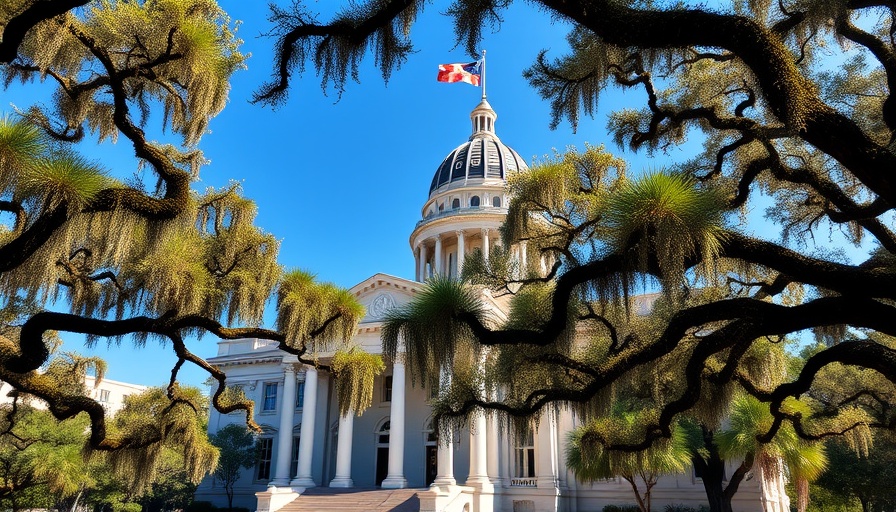
Florida's Fight Against Underage Access to Adult Content
Florida's recent lawsuit against prominent pornography websites highlights the state’s aggressive stance on ensuring age verification laws are upheld. In a move described by Florida Attorney General James Uthmeier as essential for protecting children, the state has initiated legal action against well-known adult content providers such as XVideos, XNXX, and BangBros. This lawsuit springs from the implementation of HB 3, a law passed in March 2024 that requires platforms hosting material deemed 'harmful to minors' to verify the ages of their users, effective from January 2025.
Understanding the Implications of HB 3
HB 3 extends beyond the realm of pornography; it aims to regulate content accessed by teens on various social media platforms. The legislation is designed to create a safer online environment, mandating strict age checks to prevent minors from accessing adult content. However, the law faced an immediate challenge when a judge temporarily blocked its enforcement following a lawsuit brought by NetChoice and the Computer and Communications Industry Association, representing several social media companies. The ongoing legal conflict signifies the complex intersection of regulation and freedom of expression online.
Broader Context: Social Media and Age Verification
This lawsuit raises significant questions regarding how technology companies will adapt to these stringent age verification requirements, especially given the backlash from tech advocacy groups. While the intention is to protect children, critics argue the law may pose risks to user privacy and freedom of speech. Uthmeier’s firm stance showcases the growing tension between regulatory frameworks and tech industry practices, leading to a pivotal moment in digital rights and safety.
Conclusion: Navigating Technology's Future
As this lawsuit unfolds, the technology sector must prepare to navigate the implications of enhanced age verification policies. For tech enthusiasts and business leaders alike, understanding these regulatory changes is crucial as they will likely shape the landscape of online content accessibility. With advancements in AI-powered gadgets and enhanced automated verification tools on the horizon, the future of online age verification may soon be at the forefront of tech innovation.
 Add Row
Add Row  Add
Add 




Write A Comment